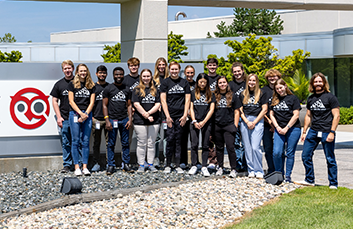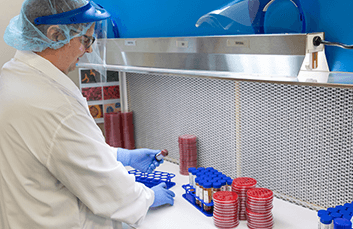CDC releases 2019 AR Threats Report
More than 2.8 million antibiotic-resistant infections occur in the United States each year, and more than 35,000 people die as a result, according to a new report from the Centers for Disease Control and Prevention.
The CDC’s “Antibiotic Resistance Threats in the United States, 2019,” known as the 2019 AR Threats Report, highlights the continued threat of antibiotic resistance in the country. Addressing this threat includes preventing infections in the first place, slowing the development of resistance through better antibiotic use, and stopping the spread of resistance when it does develop.
Antibiotic resistance – the ability of germs to defeat the drugs designed to kill them – is one of the greatest global public health challenges of our time. The new report reveals that while prevention and infection control efforts are working to reduce the number of infections and deaths caused by antibiotic resistant germs, the number of people facing antibiotic resistance is staggering.
Antibiotic resistance causes an infection every 11 seconds and one death every 15 minutes in the United States.
This report from CDC, the second of its kind, presents data about the top 18 pathogens that require attention now, ranking the threat of each as ‘urgent’, ‘serious’ or ‘concerning’. It emphasizes that antibiotic resistance is a One Health issue – the health of people is connected to the health of animals and the environment.
Urgent threats
- Carbapenem-resistant Acinetobacter
- Candida auris (C. auris)
- Clostridioides difficile (C. difficile)
- Carbapenem-resistant Enterobacteriaceae (CRE)
- Drug-resistant Neisseria gonorrhoeae (N. gonorrhoeae)

Serious threats
- Drug-resistant Campylobacter
- Drug-resistant Candida
- Extended-spectrum beta-lactamase (ESBL)-producing Enterobacteriaceae
- Vancomycin-resistant Enterococci (VRE)
- Multidrug-resistant Pseudomonas aeruginosa (P. aeruginosa)
- Drug-resistant nontyphoidal Salmonella
- Drug-resistant Salmonella serotype Typhi
- Drug-resistant Shigella
- Methicillin-resistant Staphylococcus aureus (MRSA)
- Drug-resistant Streptococcus pneumoniae (S. pneumoniae)
- Drug-resistant Tuberculosis (TB)
Antibiotic-resistant infections in humans can be difficult, and sometimes impossible, to treat. People receiving healthcare or those with weakened immune systems are often at higher risk for getting an infection. The most deadly resistant healthcare-associated germs spread from patient to patient and across healthcare facilities – and even into the community, where it’s much harder to control.
One way hospital infection control staff can check to see which resistance mechanisms are present in their local community or health system is to use an antibiotic resistance surveillance method, such as Streck ARM-D® Kits. These kits allow lab personnel to detect the most clinically important β-lactamases for current and emerging threats, including carbapenem-resistant Enterobacteriaceae (CRE), ampCs, extended-spectrum beta-lactamases (ESBL) and mobilized colistin resistance (mcr).
Streck ARM-D Kits are for Research Use Only. Not for use in diagnostic procedures.
In addition to releasing the 2019 AR Threat Report, the CDC is observing Antibiotic Awareness Week, Nov. 18-24, to raise awareness of the importance of appropriate antibiotic use to combat the threat of antibiotic resistance. The CDC education effort is called “Be Antibiotics Aware,” which points out that any time antibiotics are used, they can cause side effects and lead to antibiotic resistance. According to the CDC, in U.S. doctors’ offices and emergency departments, at least 47 million antibiotic prescriptions each year are unnecessary, which makes improving antibiotic prescribing and use a national priority.


Fall 2023 Career Fair Preview

